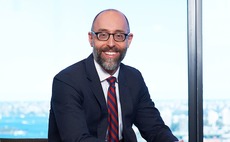
The restructuring expert
The Chairman of distressed debt investment giant Oaktree Capital spoke with AVCJ about market challenges, his firm’s relationship to private equity, and where the next wave of opportunities lie.
Q: What do you see as the top two challenges the industry is facing currently?
A: Trying to make money in a market where it's tough to make money, and being consistent in making good decisions as the environment changes and the criteria for good decisions change.
Q: Do you think the challenges are more pronounced in some regions more than others?
A: I don't think so. In a region like Asia, where the fundamental outlook is great, the challenge is that the securities are priced high. In another market, where the fundamentals may not be as good, where perhaps things are cheaper, it can be harder to discern the path forward. The interesting thing about investing is that there are many kinds of challenges and many kinds of risk. Also, the difficulties move around, and are not static.
Q: Many of your colleagues have had a difficult time fundraising over the past two years. Has the GFC and changing attitudes among LPs altered your relationships with your investors?
A: I don't think our relationships have changed. Buffett said it best, as always: ‘It's only when the tide goes out that you find out who's been swimming naked.' Investors and their clients learn very little in good times. The lessons are learned in bad times. So one advantage of the crisis has been that it presented a test; it showed who has been swimming fully clad or otherwise. The fact that we did well has cemented our relationships with our clients.
Q: China - taking into account all the capital flowing through the country - has seen a significant amount of PE activity. Does that amount to a compelling opportunity for you?
A: Well, just to clarify, our opportunities come when companies become over-indebted, and then a difficult environment makes those debts unsustainable. I'd note that Asia has not been heavily leveraged, meaning it has not been operating on debt. And that's the reason why the opportunities for us have not arisen as they have elsewhere in the world.
Q: So where over the next 3-5 years do you see the best opportunities?
A: The US, Europe. We're very attracted to Asia. You can't have growth and opportunity like Asia has had and not have some chances for investment come along. However, they haven't been what we call deep value; they're not taking advantage of over-leverage and cyclical ups and downs. It takes a different technique to invest in a growth environment - we'd have to re-calibrate, but I trust we'll be able to do so.
Q: How does your operating model compare with other firms?
A: When a good company becomes over-levered with the wrong balance sheet and runs into a tough time, it's not viable. So they must de-lever to return to viability, and it's the debt restructuring process that facilitates that. That's what we do. I like to stress to people that we are not the problem. The distressed debt investor is not the problem. He or she is part of the solution. The problem occurs when a company becomes over-levered. We have nothing to do with that. But frankly, on a couple of cyclical occasions, it has been the buyout industry that has over-levered companies. In general, though, it's certainly true that buying assets at full prices and levering them up is not a business model that makes sense in the long run. What private equity has to appropriately do is buy at attractive prices, with a reasonable amount of leverage, and then add value.
Q: Do you think there are a great number of GPs who are able to do that?
A: Investing is not egalitarian. It's not an area where everybody can be above average. In investing, everything that everybody sees is priced into the price of an asset on any given day. So to be above average, you have to see things better than most people, see them differently, see merit and demerits other people don't see and understand them better. Great investments come from a mismatch between reality and common perception.
To see more of Howard Mark's interview, check out AVCJ TV.
Latest News
Asian GPs slow implementation of ESG policies - survey
Asia-based private equity firms are assigning more dedicated resources to environment, social, and governance (ESG) programmes, but policy changes have slowed in the past 12 months, in part due to concerns raised internally and by LPs, according to a...
Singapore fintech start-up LXA gets $10m seed round
New Enterprise Associates (NEA) has led a USD 10m seed round for Singapore’s LXA, a financial technology start-up launched by a former Asia senior executive at The Blackstone Group.
India's InCred announces $60m round, claims unicorn status
Indian non-bank lender InCred Financial Services said it has received INR 5bn (USD 60m) at a valuation of at least USD 1bn from unnamed investors including “a global private equity fund.”
Insight leads $50m round for Australia's Roller
Insight Partners has led a USD 50m round for Australia’s Roller, a venue management software provider specializing in family fun parks.








